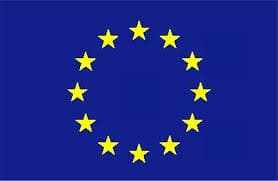Gibraltar-Based Gambling Firms Await CJEU Ruling on ‘Single Party’ Assertion
Gibraltar’s dozens of online gambling firms remain in a holding pattern, waiting as the Court of Justice of the European Union [CJEU] continues its consideration of the UK protectorate’s desire to be treated as a “single party” under EU law, and thus separate from the United Kingdom in matters of trade with the rest of EU, particularly as it relates to online gambling and sports betting.
 The latest appeal to the CJEU was approved for review by that international body last month, though a ruling on the matter won’t likely be issued for several more months. It’s a vital issue for both Gibraltar and the many online books and casino sites that call the promontory their home. Since Gibraltar, home of the famed “Rock” at the mouth of the Mediterranean Sea, opened its virtual doors to the online gaming industry a decade ago, the revenue generated from those firms accounts for a full quarter of Gibraltar’s entire GDP.
The latest appeal to the CJEU was approved for review by that international body last month, though a ruling on the matter won’t likely be issued for several more months. It’s a vital issue for both Gibraltar and the many online books and casino sites that call the promontory their home. Since Gibraltar, home of the famed “Rock” at the mouth of the Mediterranean Sea, opened its virtual doors to the online gaming industry a decade ago, the revenue generated from those firms accounts for a full quarter of Gibraltar’s entire GDP.
The ongoing fight now involves two separate prongs. First, there’s the long-running battle between Gibraltar and the UK over the 15% “point of consumption” [POC] tax implemented by the UK, which applies to online gambling. That’s the levy that many of the firms now operating from Gibraltar moved there (from the UK) to avoid.
Last year, the CJEU ruled in favor of the UK’s levy, codified as changes to the country’s Gambling Act. However, this year’s more recent “Brexit” referendum by the UK to leave the European Union has complicated the matter further. Gibraltar’s citizens voted to remain part of the EU by a wide margin, but were overwhelmed, as were the “stay” majorities of Northern Ireland and Scotland, by the much larger pro-Brexit populaces of England and Wales.
That Brexit vote, as surmised, has further thrown Gibraltar’s political future into at least a bit of uncertainty. The little promontory is already a disputed territory — it’s also claimed by Spain — and even though its citizens have full UK voting rights, the territory never has been a full part of the EU. Gibraltar has never been part of the EU’s Schengen Area, which defines the EU’s main European trade area, and it is also not subject to the hated VAT assessments that come into play in other jurisdictions.
Yet exactly what Gibraltar is, is now unclear, and that’s part of what the CJEU must decide. To a certain extent, Gibraltar wants to have its cake and eat it, too. Relying on a highly technical interpretation, Gibraltar’s largest online-gaming trade organization, the GBGA [Gibraltar Betting and Gaming Association], will argue that the UK’s 2014 changes to the Gambling Act, especially that 15% POC tax, is in effect “an unlawful restriction on the supply of services to the UK.”
The GBGA, with Gibraltar’s full backing, is arguing that the unique nature of Gibraltar’s political status makes the POC implementation unlawful under Article 56 of the TFEU, the Treaty on the Functioning of the European Union. Without getting too technical here and delving into legalese, that argument seems to beg a larger point. It seems unlikely that the CJEU or any international body would approve any tax exemption simply on the nature of a jurisdiction claiming to be “special”. Further, Gibraltar’s unusual status as a unique EU territory is due largely to its status as a UK protectorate, the other benefits of which the GBGA and its member firms may end up nullifying as they seek to avoid the POC levy.
It’s a tightrope act, and high winds are blowing. It seems unlikely that the GBGA can prevail on both sides of its argument, and that will throw the long-term future of Gibraltar as an online-gambling hub into doubt. It’s Gibraltar itself that will take the direct blow, if the GBGA, as expected, loses this new claim. The GBGA’s member firms will likely just move on to another EU-accessible jurisdiction. As we surmised some months ago, Malta may well had that list, and the island may emerge in the coming years as Europe’s true online-gaming and sports-betting home.





